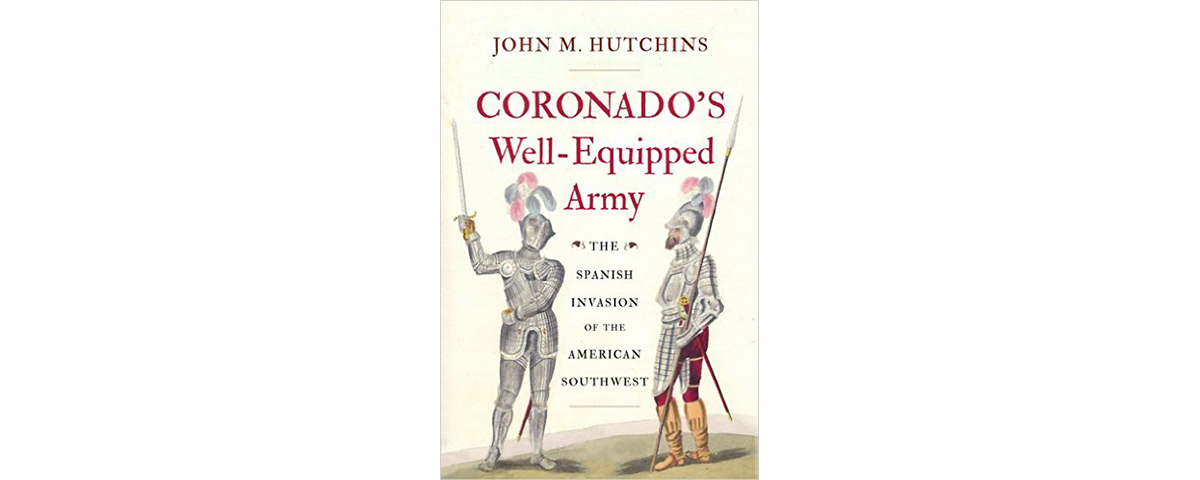Coronado’s Well-Equipped Army: The Spanish Invasion of the American Southwest, by John M. Hutchins, Westholme Publishing, Yardley, Pa., 2014, $29.95
Among the figures that emerged from Spain’s half-century of discovery and conquest in the New World, Francisco Vásquez de Coronado is primarily associated with failure. Leading the first expedition (1540–42) northward from Mexico into the American Southwest, he fought numerous battles during his search for the fabled Seven Cities of Gold but ultimately returned empty-handed, leaving behind a legacy of ill will toward the Indians.
Most histories of Coronado’s entrada (“enterprise”) focus on its context within the Spanish exploration of the Southwest In Coronado’s Well-Equipped Army, however, retired U.S. Army Reserve Major John M. Hutchins examines the entrada primarily from a military standpoint. Faced with the fighting tactics of various peoples, from Aztec armies to Hopi and Zuni pueblos and hilltop strongholds the Spanish called penals, Coronado and his conquistadors had to adapt their equipment and tactics to warfare that differed markedly from the European style. Traveling, too, across the deserts and Llano Estacado (Staked Plains) of what would become New Mexico and the Texas Panhandle—described by Captain Diego López as comprising “nothing but cows [bison] and sky”—presented unprecedented challenges. While camping in a ravine in the Llano Estacado, Pedro de Castaneda described how “a tempest came up one afternoon with a very high wind and hail, and in a very short space of time a great quantity of hailstones, as big as bowls, or bigger, fell thick as raindrops, so that in places they covered the ground two or three spans or more deep.”
Throughout Coronado’s meanderings, of course, Hutchins superimposes the human factor, such as decisions on how to deal with the Indians. Establishing good relations with the Jicarilla (Plains) Apaches provided the Spanish with useful guides in a region about which they had little or no reliable information. In the region they called Tiguex, on the other hand, the Spanish quickly wore out their welcome with their ruthlessness, prompting a war with the inhabitants that brought out the conquistadors’ ruthless side.
Coronado’s Well-Equipped Army gives the man his due for two accomplishments: that he led his force home intact from the debacle, and that, unlike a good many of his more successful contemporaries, he died in bed a dozen years after retiring from adventuring.
—Jon Guttman





